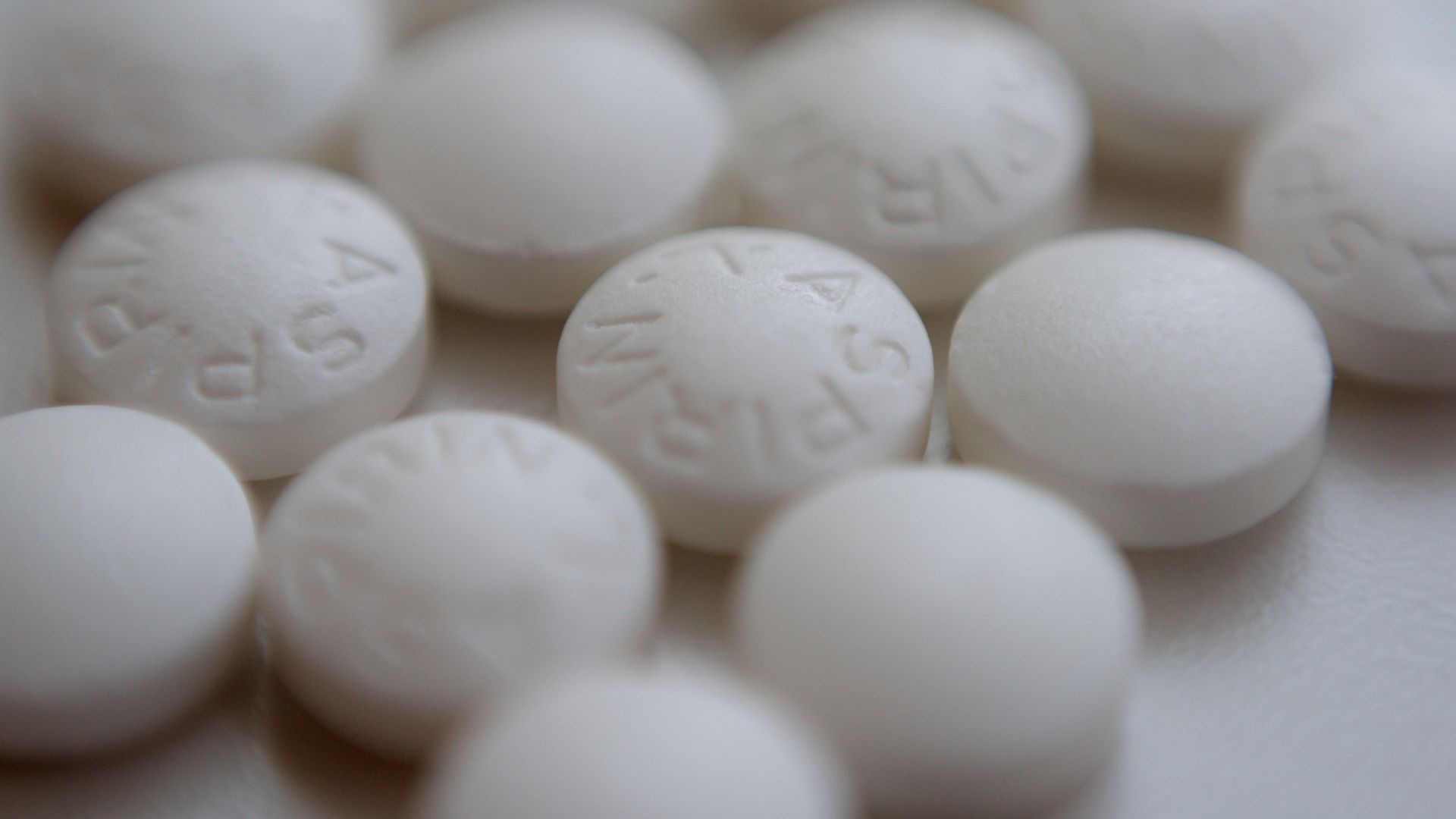
RESEARCHERS SAY A DAILY ASPIRIN CAN PREVENT A HEART ATTACK IN ADULTS WHO HAVE SURVIVED AN EARLIER HEART ATTACK OR STROKE.
BUT DESPITE THE STRONG EVIDENCE —
A NEW STUDY SUGGESTS LESS THAN HALF OF ADULTS WHO HAVE A HISTORY OF CARDIOVASCULAR DISEASE ARE TAKING THE PILL.
ABOUT 40 PERCENT OF PEOPLE WORLDWIDE WHO HAVE PREVIOUSLY SUFFERED A HEART ATTACK ARE TAKING ASPIRIN ACCORDING TO RESEARCHERS AT WASHINGTON UNIVERSITY AND MICHIGAN UNIVERSITY.
CARDIOVASCULAR DISEASES ARE THE LEADING CAUSE OF DEATH WORLDWIDE —
WHICH IS WHY DOCTORS PART OF THE LATEST STUDY WANT PEOPLE WITH A HISTORY OF PROBLEMS TO TAKE ASPIRIN AS “SECONDARY PREVENTION” — MEANING REDUCING THE RISK OF AN ADDITIONAL HEART ATTACK OR STROKE.
AVAILABLE RESEARCH SHOWS THE BENEFITS FAR OUTWEIGH THE RISKS ACCORDING TO THE AUTHORS OF THE STUDY.
SOME COUNTRIES HAVE FAR LESS ACCESS —
WITH ONLY 16 PERCENT OF PEOPLE WITH PRIOR HEART ATTACKS TAKING ASPIRIN IN LOW-INCOME COUNTRIES.
IN THE U.S. — THE PERCENTAGE IS CLOSER TO 65 PERCENT — MEETING THE GOAL OF THE WORLD HEALTH ORGANIZATION.






